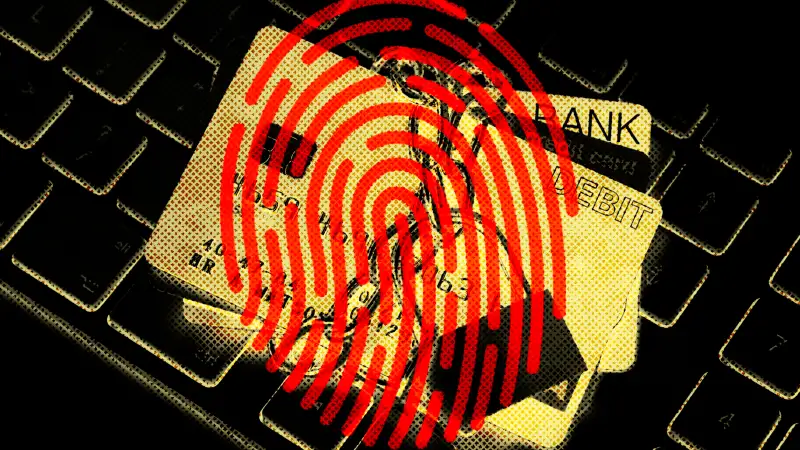How to Report Identity Theft

If you’ve been the victim of identity theft, it’s crucial that you report it quickly in order to reduce its impact on your financial life.
There are several agencies you should notify, including the police and the Federal Trade Commission (FTC), which enforces federal consumer protection laws.
Read on to learn how to report identity theft to authorities, as well as additional tips on how to protect your data.
Table of Contents
- What is identity theft?
- How to file a report for identity theft
- How to report identity theft FAQ
- Summary of Money’s how to report identity theft
What is identity theft?
In 2019 alone, roughly 13 million Americans were victims of identity theft. This type of fraud, which involves the theft of someone’s personal or financial information, can take different forms.
Scammers might use your Social Security number to claim your tax refund or take out a loan in your name, for example. They could also gain access to your credit card number to make unauthorized purchases or your debit card information and drain existing accounts.
These are some common ways an identity thief can get a hold of your data:
- Through public Wi-Fi connections to intercept data transmitted between your device and the unsecured network you're connected to.
- By emailing you malicious links or email attachments that might infect your computer or smartphone with malware and give them access to the device.
- By calling and impersonating a government agency or financial institution employee to trick you into sharing information.
- Sending phishing emails or text messages that trick you into sharing information or clicking a malicious link.
- In a data breach where cybercriminals gain unauthorized access to a company's databases.
- Through non-digital methods like stealing mail, digging through the trash for documents or swiping wallets.
What to do if your identity is stolen
You should file an online report with the Federal Trade Commission (FTC) at IdentityTheft.gov. You can also report the incident by phone at 1-877-ID-THEFT (438-4338). However, we recommend filing an online report as you can print it to share with your local authorities and lenders.
To file an online report, simply follow the prompts asking you to describe the type of ID theft that best describes your situation — if your information was exposed in a data breach or used to get government benefits, for example.
Through IdentityTheft.gov, you can also create an account that gives you access to an identity recovery plan based on your particular situation. Other helpful resources available in the site include sample letters you can send to credit bureaus and lenders asking to get inaccurate information removed from your credit report.
How to file a report for identity theft
The FTC notifies relevant law enforcement agencies automatically when you file an online report through IdentityTheft.org. However, it’s advisable to also file a report with local police.
Additionally, if you’ve a victim of a Social Security or tax scam, you should contact the Social Security Administration (SSA) or Internal Revenue Service (IRS).
How to file a police report for identity theft
It’s important to file a report with local law enforcement, especially if you know who committed the crime or if the thief used your information during an interaction with the police (like an arrest).
You will also need a copy of the police report as some creditors or financial institutions might ask for evidence before closing fraudulent accounts opened in your name, for example.
These are the steps you should follow to file a police report for identity theft:
- File an identity theft report with the FTC. Print a copy of your report as authorities will ask for it.
- Visit your local police department and be prepared to present a government-issued photo ID and proof of your address (such as a utility bill).
- It's also helpful to show documentation that proves the theft — like a bank account statement or notices from government agencies.
- Once you file the report, ask for a copy. Other agencies or companies might ask for it as evidence.
How to report identity theft to Social Security
To report a Social Security fraud, contact the Office of the Inspector General (OIG) of the Social Security Administration. Submit a fraud report online or call the OIG's fraud hotline at 1-800-269-0271.
You'll need to provide your personal information and a description of how and when the fraud was committed. You can file the report if you don't know these details; however, sharing as much information as possible can help speed up the case.
Additionally, if your Social Security card was stolen, you can request a copy online from the Social Security Administration website.
How to report identity theft to credit bureaus
All three major credit bureaus are required to place a fraud alert on your credit report if you report your personal information as stolen. A fraud alert lets lenders and creditors know they should take extra steps to confirm your identity before opening up new accounts under your name.
Fraud alerts typically last one year. However, you can request an extended, seven-year fraud alert once you file an identity theft report with the FTC or local police.
Do note that you only need to contact one of the credit agencies to set up a fraud alert across all your credit files. When you inform one of the bureaus, the agency will pass on the request to the remaining two.
To request a fraud alert, contact one of the bureaus online, through mail or by phone at:
TransUnion
Fraud Victim Assistance Department
P.O. Box 2000 Chester, PA 19016-2000
Phone: 800-680-7289
Equifax Credit Information Services
Fraud Victim Assistance Department
Consumer Fraud Division P.O. Box 740256
Atlanta, GA 30374
Phone: 800-525-6285
Experian
National Consumer Assistance
P.O. Box 9554
Allen, TX 75013
Phone: 888-397-3742
How to report identity theft to IRS
If you were the victim of identity theft, contact the IRS Identity Protection Specialized Unit at 800-908-4490 or fill out the IRS Identity Theft Affidavit (Form 14039). This form informs the IRS that someone stole your identity, even if they haven't used it to file a fraudulent tax return.
You should also consider setting up an Identity Protection PIN (IP PIN). Also known as an IRS tax PIN, it prevents scammers from filing a tax return using only your Social Security number or Individual Taxpayer Identification Number.
Other steps you should take
These are some additional steps you should consider if your information has been compromised:
- Contact the Department of Labor fraud hotline if someone used your information to file for unemployment benefits. You can find the number of your state office through the website for the U.S. Department of Labor.
- Contact your state's Department of Motor Vehicles if your driver's license is missing.
- If you suspect someone stole your mail, report it to the U.S. Postal Inspection Service.
- Ask each of the credit bureaus for a credit freeze. This stops anyone (including yourself) from applying for new credit lines until the freeze is lifted. Do note that, under federal law, security freezes don’t apply to credit report requests made for employment, tenant screening or insurance purposes.
- Order a copy of your credit report through AnnualCreditReport.com. You can now request free credit reports every week until December 31, 2022.
- Learn how to check your credit report and review it for suspicious transactions or new credit accounts. If you find any, file a dispute with the credit bureaus. For more information on how to do this, check out our guide on How to Remove Negative Items from Your Credit Report.
- Inform your bank and credit card companies about the incident. Most have dedicated fraud departments which can help you safeguard your existing accounts and get new account numbers. This also stops lenders from transferring accounts that don’t belong to you to debt collectors.
- Change your usernames and passwords, especially on your financial accounts. Additionally, consider getting a password manager.
- Consider subscribing to an identity theft protection service, which can alert you whenever someone uses your information fraudulently. If you need help picking the right one, make sure to check out our list of the Best Identity Theft Protection Services.
How to Report Identity Theft FAQ
Do police investigate identity theft?
How do I know if my identity has been stolen?
What is criminal identity theft?
How to remove identity theft from credit report
Summary of Money’s How to Report Identity Theft
If you believe you’re an identity theft victim, file a report with the FTC through IdentityTheft.org. You should also notify local police since financial institutions might ask for a police report to freeze or close fraudulent accounts. In the event of Social Security or tax fraud, contact the Social Security Administration (SSA) or Internal Revenue Service (IRS) as well.
After reporting the incident, read up on how to protect yourself from identity theft to reduce your chances of being a victim of other scams in the future.

